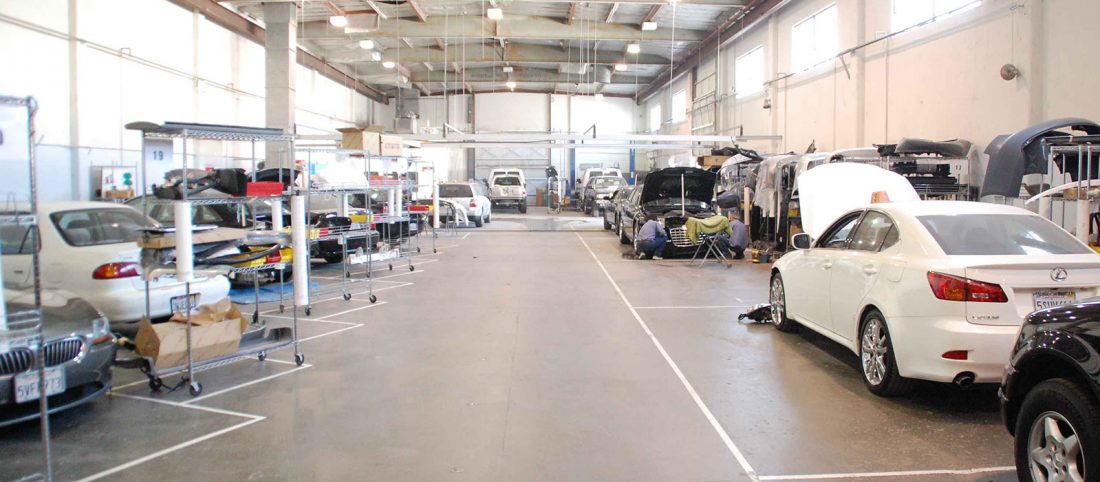All Categories
Featured

[/image]
Routine engine tune-ups are essential for preserving your vehicle's efficiency, enhancing fuel efficiency, and expanding its lifespan. Whether you're an experienced cars and truck owner or a newbie, recognizing the essential aspects of an engine tune-up can help you maintain your auto running efficiently for several years. Below are some essential pointers to guide you with the process.
- Change the Glow Plugs. Ignition system are small yet magnificent parts that play a vital role in firing up the fuel-air mixture in your engine. Over time, they can break or become fouled, causing inadequate engine efficiency, reduced gas effectiveness, and tough beginnings.
During a tune-up, evaluate your spark plugs for wear and change them as essential. For a lot of automobiles, trigger plugs need to be changed every 30,000 to 100,000 miles, relying on the kind and material. Fresh ignition system ensure efficient burning and smoother engine procedure.
- Examine and Replace the Air Filter. The air filter is your engine's initial line of protection against dirt, debris, and other contaminants. A clogged or filthy air filter can restrict airflow, creating your engine to work more challenging and take in more fuel.
Examine your air filter during a tune-up and replace it if it's filthy or previous its recommended service interval. A tidy air filter improves engine performance and enhances gas economy.
- Check the Gas System. Gradually, your fuel system can build up dirt and carbon deposits, lowering engine efficiency and fuel effectiveness. Cleaning up the gas injectors and fuel lines throughout a tune-up helps preserve correct gas shipment and combustion.
You can utilize a gas system cleaner or have a specialist mechanic perform an extra extensive cleansing. This step is particularly useful for older vehicles or vehicles frequently driven in stop-and-go website traffic.
- Examine the Belts and Tubes. Belts and tubes are critical for different engine functions, such as running the generator, water pump, and cooling. Throughout a tune-up, look for cracks, fraying, or indicators of wear on these parts.
Change any kind of worn-out belts and hose pipes to stop prospective malfunctions. A busted belt or leaking hose pipe can bring about engine getting too hot or loss of power, so dealing with these issues immediately is crucial.
- Replace the Engine Oil and Oil Filter. Engine oil is essential for oiling relocating parts, reducing friction, and controling engine temperature. In time, oil becomes polluted and loses its effectiveness.
As component of a tune-up, change the engine oil and oil filter. Use the kind of oil recommended by your vehicle's supplier and stick to the recommended modification intervals. Tidy oil maintains your engine running efficiently and avoids premature wear.
- Evaluate the Battery and Billing System. A healthy and balanced battery is important for beginning your car and powering its electric systems. During a tune-up, inspect the battery's voltage and inspect the terminals for deterioration. Tidy the terminals if required and make sure a protected link.
In addition, test the generator and billing system to guarantee your battery remains charged throughout operation. If your battery is weak or old, consider changing it to avoid unanticipated break downs.
- Flush and Fill Up the Coolant. The air conditioning system controls your engine's temperature, stopping it from overheating. Old or contaminated coolant can shed its performance, leading to potential engine damage.
Throughout a tune-up, purge the old coolant and change it with a fresh blend. Evaluate the radiator, thermostat, and tubes for leaks or damage. Maintaining the air conditioning system in excellent condition guarantees your engine runs at the appropriate temperature.

- Address Warning Lights and Uncommon Symptoms. Modern cars are geared up with analysis systems that alert you to potential problems through dashboard caution lights. If your check engine light or any type of other alerting indicators are on, resolve them throughout your tune-up.
Furthermore, focus on uncommon signs such as unusual sounds, harsh idling, or reduced gas effectiveness. An expert mechanic can diagnose and solve these troubles during the tune-up procedure.
- Don't Neglect the Exhaust System. Your vehicle's exhaust system removes unsafe gases from the engine and makes certain appropriate emissions. Check the exhaust system for leaks, corrosion, or damage throughout a tune-up. A malfunctioning exhaust system can influence engine efficiency and lead to environmental and safety issues.
- Use High-Quality Components and Fluids. When replacing parts or complementing fluids during a tune-up, constantly go with high-grade items that meet your car's specifications. Utilizing below average components or wrong fluids can negatively impact your engine's efficiency and longevity.
Conclusion: Regular Tune-Ups Are Trick to Engine Health And Wellness. Making the effort to tune up your engine ensures it runs effectively, saves fuel, and lowers the danger of malfunctions. Whether you do these tasks on your own or count on a trusted technician, normal tune-ups are an investment in your automobile's integrity and longevity. Comply with these suggestions, and you'll appreciate a smoother, more trustworthy adventure for years ahead.
Latest Posts
Explore Special Auto Repair Deals in Chicago at Montclare Auto Repair
Explore Special Auto Repair Specials in Chicago at Montclare Auto Repair
Join WyHy FCU – Top Benefits for Your Future